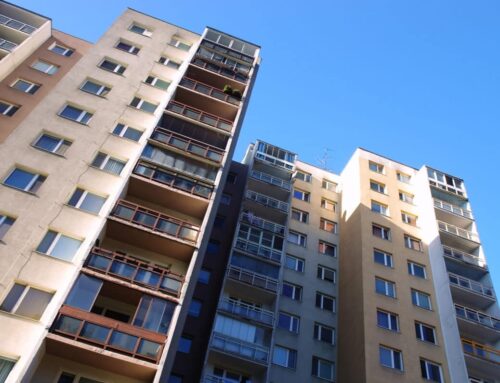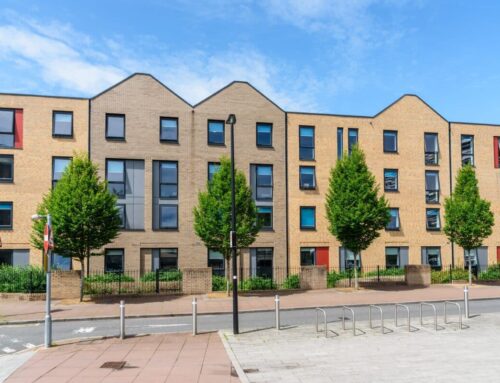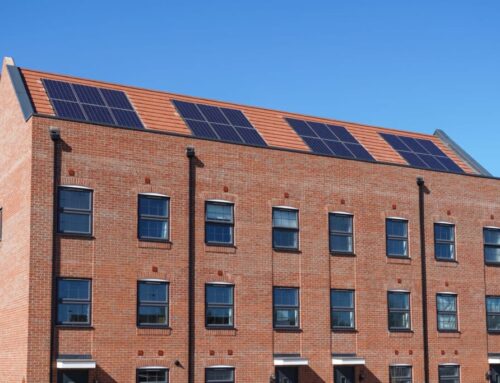The team at Block in a Box highlight the importance of performing fire risk assessments at your block of flats.
In July 2022 we saw a tower block fire in East London (which took 125 firefighters and 15 fire engines to bring under control) as well as the new phenomenon of urban wildfires which destroyed 40 properties. In August 2022, another tower block fire broke out (this time in Hertfordshire), affecting 21 flats and forcing all residents into temporary accommodation.
With these instances and the countless others we don’t see in the headlines occurring every day, your responsibilities when it comes to fire safety must be at the forefront of your mind as a Property Manager or RMC Director.
Here we’ll be giving you a reminder of your responsibilities under Health and Safety law.
Your Obligations
Any party responsible for a block of flats is legally required to undertake a Fire Risk Assessment of the common parts of the building and to keep that assessment under regular review while complying with any recommendations made.
While assessments should be completed by an ‘competent person’, the buck ultimately stops with the RMC or Managing Agent- so due diligence is advised before settling on a contractor to complete the task.
Remember, Fire Officers have the right to enter any block of flats to inspect the building and any risk assessment paperwork at any time and completely unannounced so, keeping a paper trail of assessments, reviews and any improvements made is vital.
What is a Fire Risk Assessment and What Does it Cover?
Fire risk assessments involve the review of a building and its fire risks. The findings of the assessment must be recorded in written form for buildings with 5 or more occupants.
An assessor will likely consider how likely a fire is to start in the building in its current state, what the consequences would be if a fire did start with the building in its current state and what needs to be done in the building to minimise the risk of fires starting and/or spreading.
The assessment looks at the general fire precautions that are currently in place in the building’s common areas and the complexity of the assessment will depend on the size and usage of the building.
In all cases, the assessor will look at measures in place to:
- Reduce the risk of a fire starting e.g. ‘no smoking’ signs or regular electrical safety checks
- Reduce the risk of fire spreading e.g. fire doors
- Alert people about a fire in the building e.g. working smoke alarms
- Enable people to escape from the building e.g. clear escape routes and safety lighting
- Tell people what to do if a fire starts e.g. a displayed emergency plan
- Reduce the harm caused if a fire starts e.g. fire extinguishers or sprinklers
The general fire precautions must protect people who are allowed to be in the building as well as people near the building who may be at risk if a fire started.
How Often Should a Building be Assessed?
As a general rule and according to The Leasehold Advisory Service and The Local Government Association, assessments should be reviewed if there is reason to believe the current assessment for the block is no longer valid or if there have been any significant changes within the block (such as major works).
For purpose-built blocks that are less than 20 years old and up to 3 storeys above ground level:
- Re-assessments should be carried out every 2 years if no significant changes have occurred
- A full re-assessment should be carried out every 4 years if no significant changes have occurred
For older buildings or with more than 3 storeys:
- Re-assessments should be carried out every year even if no significant changes have occurred
- A full re-assessment should be carried out every 3 years even if no significant changes have occurred
For buildings considered extremely high risk, a full re-assessment on an annual basis is advised.
What Steps Can I Take to Make Sure I’m Compliant?
The NFCC suggest that the following steps are taken to ensure you are complying with Fire Risk Assessment law as the person or agent responsible for a residential building:
- Be satisfied that the fire risk assessor who carries out the work is competent. This can be demonstrated by them providing evidence of compliance with the competency criteria set down by the Fire Risk Assessment Competency Council (see above).
- Check that they have experience of working for your kind of business and premises.
- Be clear about the scope of the work to be carried out and ensure that the assessor is provided with access to all areas of the premises and with relevant information.
- Obtain alternative quotes – make sure they all cover the same scope, so you can draw a proper comparison.
- It is advisable to request references from previous clients in similar premises types; ask them if they were satisfied and if any problems were later identified by the Fire and Rescue Authority.
- It is advisable to ask for proof that they have sufficient professional indemnity insurance and to seek assurance that the contractor is impartial and has a complaints procedure.
- Keep and maintain records of the steps you took in selecting your fire risk assessor.
Who Do We Recommend?
The responsibility of ensuring your residents’ safety, and the safety of their investments, must be taken seriously. Due diligence is vital, as is ensuring that document your efforts to comply with the law, to protect yourself against any claims should the worst happen. Luckily, we work with Block in a Box who are on hand to make life a little easier for RMC Directors by hand picking qualified, trusted professionals.
For Fire Risk Assessments, Block in a Box work with 4Site Consulting. Established in 2006, 4Site are a family-run Health & Safety consultancy and a trusted name in the property management industry.
For a quote, you can fill in our online form, call our team on 0333 0154 145 or email info@blockinabox.co.uk and we will be in touch.
Block in a Box not only provides information on how to protect your block of flats against emergencies over winter. We can also help with utilities, repairs, insurance, health and safety, and just about any other issue a flat owner or manager might face. To learn more about leasehold management companies or freehold management companies, contact our friendly and professional team today on 0333 0154 145.







Leave A Comment